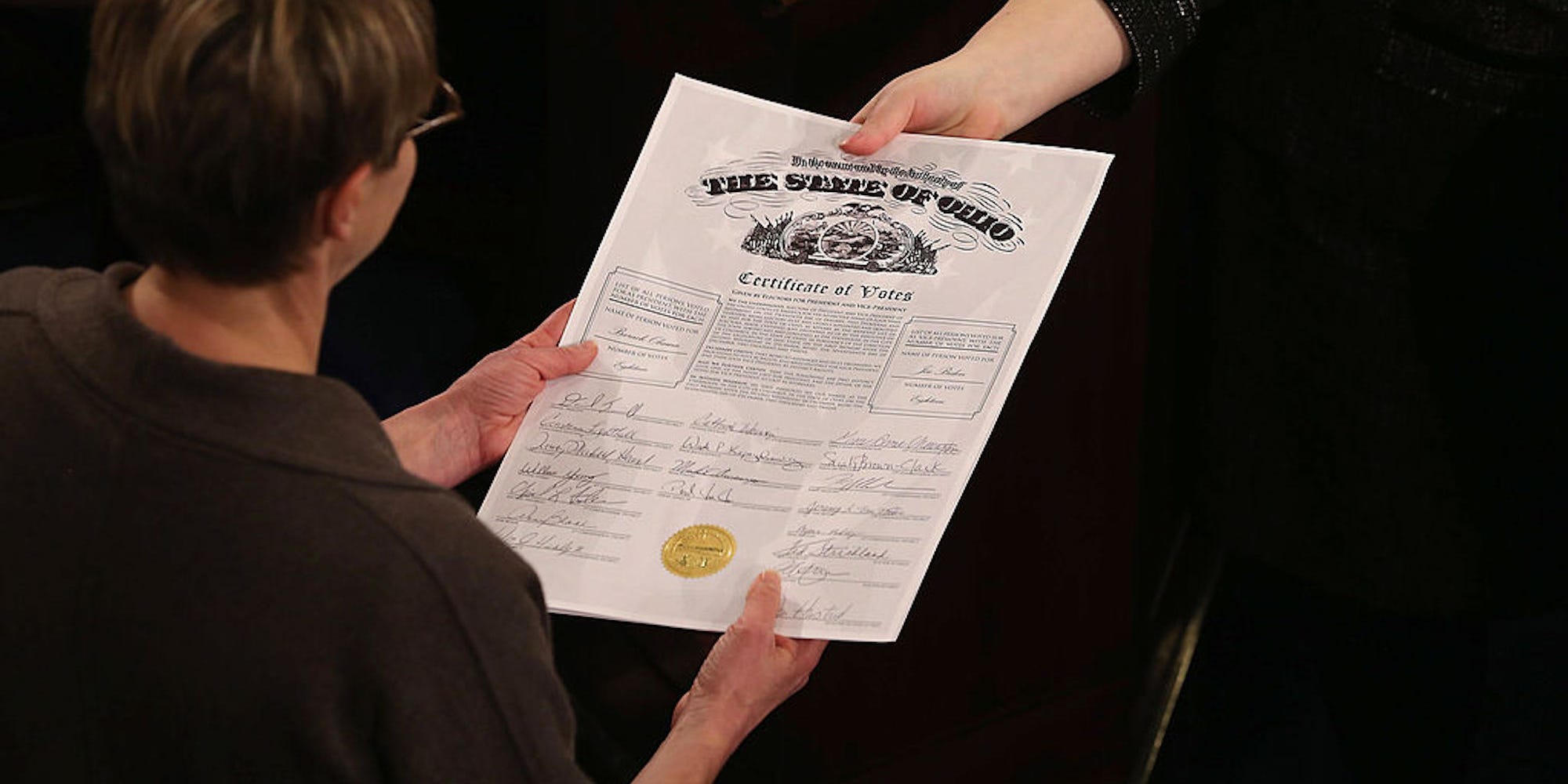
Chip Somodevilla/Getty Images)
- The Electoral College is meeting on Monday to cast votes for the next president of the United States, President-elect Joe Biden.
- The meeting is usually a formality, but this year’s one has a special significance following President Donald Trump’s bid to subvert the result of the 2020 presidential election.
- This year’s meeting and vote effectively end Trump’s already-slender chances of retaining power.
- Trump has even attempted to subvert the Electoral College itself as part of his challenge to Biden’s victory.
- Visit Business Insider’s homepage for more stories.
All 538 members of the Electoral College is meeting on Monday to cast votes for the next president of the United States, President-elect Joe Biden.
The meeting is usually a barely-noticed formality, with Americans having known the results of the presidential election for more than a month.
But this year’s meeting has an unusual significance, as it comes after President Donald Trump’s attempts to override the votes of the American people in order to cling to power for another four years.
Since his defeat, Trump has broken with decades of tradition designed to ensure the peaceful transfer of power and the stability of US democracy.
He has refused to concede victory to Biden, while his campaign has launched a series of unsuccessful bids to challenge the election results in swing states via the courts.
In a devastating blow last Friday, the Supreme Court rejected a long-shot bid which had been launched by Texas' attorney general to overturn the results in four battleground states, all of which had been won by Biden.

Brenda Smialowski/AFP/Getty Images
Trump tried to subvert the Electoral College itself
As his lawsuits crashed to defeat in the courts, Trump and his allies had also implemented a bizarre, last-ditch plot to subvert the Electoral College itself.
The plan relied on Republican state lawmakers in battleground states refusing to ratify the result of the popular vote, and replacing the electors with a new set of Trump loyalists who would cast their votes for Trump instead of Biden.
In pursuit of the plan, Trump attempted to directly pressure GOP state officials in Michigan, Pennsylvania, and Georgia to block Biden's victory.
That plan has failed, and as it has done since 1789, the Electoral College will meet on Monday to cast their votes in compliance with the will of voters, not the demands of the president.
It will hand Biden a 306-vote win, cementing his status as America's 46th president.
Congress is then poised to receive and certify the result at a special session on January 6, 2021, and Biden will be inaugurated on January 20.
However, according to NBC News, a core of pro-Trump lawmakers who backed Texas' Supreme Court lawsuit could try to erect a new hurdle to the certification during the special session.
The chances of this plan's success is close to zero, though. That bid would rely on both chambers of Congress blocking the certification of the result, and the House is currently and will be controlled by the Democratic Party.
Nevertheless, it appears that despite the Electoral College meeting, Trump has no plans to halt his increasingly doomed bid to overturn the election results.
In an interview with Fox News on Sunday, Trump continued to falsely proclaim himself the victor of the election and pledged to continue his battle in the courts.
"We're going to speed it up as much as we can, but you can only go so fast. They give us very little time," remarked Trump.
It is clear that Trump's campaign has worsened the country's partisan divide.
According to a Quinnipiac poll last week, 77% of Republicans believe that Trump was cheated out of victory. And on Saturday, far-right Trump supporters and antifa counterprotesters fought on the streets of Washington, DC.

